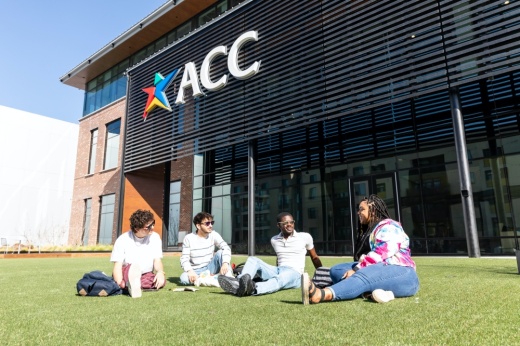“It's been very difficult for these students over the past couple of years, so any monetary assistance ACC can do, we're stepping up to the plate and doing it as much as possible,” said Jason Briseño, ACC executive dean of financial assistance and veteran affairs.
In May, the community college awarded about $1 million of its Higher Education Emergency Relief Fund to registered students impacted by the pandemic. Approximately 1,000 students received $1,000 for tuition, fees or other educational expenses during the summer semester, running from late May to early August, Briseño said.
ACC is also using an additional $75,000 from the Governor’s Emergency Education Relief Fund to relieve student debt for those impacted by the pandemic up to $1,000 per student. In May, ACC released the funding to around 20 students, Briseño said. The second allocation will go out in August for the fall semester.
“We targeted students who are low income, who were Pell eligible—students who obviously wouldn't have the means to pay $800 or $1,000—and we were targeting those students trying to get them back into the fold and back into school,” Briseño said.
In June 2021, the college received its most recent allocation of HEERF money at $58 million under the American Rescue Plan, about $29.4 million of which was designated for students and $28.4 million earmarked for the institution, said Sydney Pruitt, ACC senior media relations coordinator. ACC distributed $17 million to students for the fall semester in 2021 and $21 million for the spring semester in 2022, Briseño said.
“This is just the very last of the funding that we have, because most schools, including ACC, are already running down pretty low on HEERF funding,” Briseño said. “A lot of schools that I've talked to didn't even have money for the summer.”
As the college has maxed out the student portion of its HEERF funding, Briseño said the most recent $1 million distribution for the summer semester came from institutional funding.
“We're using funding that initially could have went to the college,” Briseño said. “We used it for student emergency funds, just to keep it going as long as possible.”
Since March 2020, ACC has awarded over $58 million in HEERF money to more than 16,000 students and has moved $16.4 million of its institutional funding over to fund student relief, Pruitt said.
“Over the past couple of years since March, we've continuously moved over institutional funding, just to continue to help students as much as possible,” Briseño said.
ACC enrolls over 70,000 students annually, according to its website. Briseño said students can apply and receive financial aid at any point throughout the year.
“We have really increased our technology for rapid awarding, where a student can submit their [Free Application for Federal Student Aid], and they can literally be awarded in a week instead of six weeks where it was before,” Briseño said. “We want to clear as many barriers as possible for students to register and enroll, and complete the semester successfully.”





